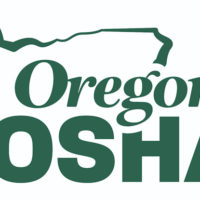
In October, Oregon OSHA will present the third Spanish-language conference addressing workplace safety and health, and workers’ rights while on the job. Attendees will learn how to assert their rights to a safe and healthy workplace, protect their safety and health at work and at home, and to protect against wage theft.
The free conference, titled “Safety, Health, and Your Rights at Work,” will be held from 8:30 a.m. to 3:30 p.m. on Tuesday, Oct. 17, at Ashland Hills Hotel & Suites, 2525 Ashland St. in Ashland. Presenters include workplace safety and health professionals, and other experts. The event will feature lunch and exhibits.
“This conference speaks to Oregon OSHA’s ongoing commitment to improve outreach to the most vulnerable workers by offering a venue where crucial workplace safety and health information is provided entirely in the language of many such workers,” said Renée Stapleton, administrator for Oregon OSHA. “We place a high value on community engagement, and we look forward to helping Spanish-speaking Oregonians understand their safety and health rights.”
Those interested in attending this free conference must pre-register by Tuesday, Oct. 10. Register now. For more information, visit the conference webpage, send an email to oregon.conferences@dcbs.oregon.gov or call 541-618-7903.
Conference topics include:
- Asserting your right to a safe workplace
- Protecting your health at work and at home
- Identifying and addressing common workplace hazards
- Safety and health in:
- Agriculture
- Construction
- Forestry
- Manufacturing
- Role of the supervisor in workplace safety
- Protecting yourself from wage theft
- Whistleblower protection program
The conference underscores Oregon OSHA’s commitment to bolstering its outreach efforts, breaking down language barriers, connecting with more workers and employers about free workplace safety and health resources, and advancing on-the-job safety and health for all workers in Oregon.
Visit Oregon OSHA’s Spanish-language online training courses, and learn about the division’s PESO program, a bilingual program that helps English-speaking employers train and talk about workplace safety and health issues with Spanish-speaking workers.
Workers have a right to a safe and healthy workplace. That includes the right to raise concerns free from retaliation and to file a complaint with Oregon OSHA, which advances safety for all Oregon workers through enforcement, consultation, technical, and public education and training services. The Ombuds Office for Oregon Workers, an independent advocate, offers workers help in understanding their rights within workplace safety and health rules, and their rights within the workers’ compensation system. The office’s toll-free phone number is 800-927-1271.
Moreover, the Department of Consumer and Business Services (DCBS) Multicultural Communications Program provides outreach to communities with limited English proficiency. That outreach includes information about on-the-job safety and health. The program includes a toll-free phone number for Spanish-speaking Oregonians at 800-843-8086.
###
Oregon OSHA, a division of DCBS, enforces the state’s workplace safety and health rules and works to improve workplace safety and health for all Oregon workers. For more information, go to osha.oregon.gov.
DCBS is Oregon’s largest business regulatory and consumer protection agency. For more information, go to www.oregon.gov/dcbs.















